Publications
Articles, publications, books, tools and multimedia features from the U.S. Institute of Peace provide the latest news, analysis, research findings, practitioner guides and reports, all related to the conflict zones and issues that are at the center of the Institute’s work to prevent and reduce violent conflict.
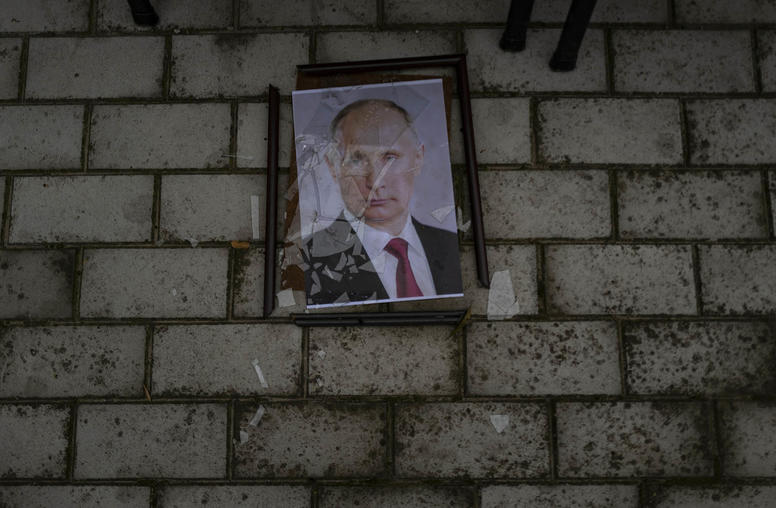
How the ICC’s Warrant for Putin Could Impact the Ukraine War
The International Criminal Court (ICC) announced last Friday that it had issued arrest warrants for Russian President Vladimir Putin and Presidential Commissioner for Children’s Rights Maria Lvova-Belova. According to a statement issued by the ICC, Putin and Lvova-Belova are alleged to have committed the war crimes of “unlawful deportation of population (children) and that of unlawful transfer of population (children) from occupied areas of Ukraine to the Russian Federation” beginning in at least February 24, 2022. USIP’s Lauren Baillie, Heather Ashby and Mary Glantz discuss the impacts of these warrants on Putin and on the war in Ukraine.

Elite Capture and Corruption of Security Sectors
The objective of US security sector assistance is to help build effective, accountable, responsive, transparent, and legitimate security sectors in partner nations to address common security risks. Such action ultimately benefits US national interests, as when the United States modernized West Germany’s military during the Cold War; when US security sector support to South Korea helped the United States deter regional threats; and when, in Ukraine, US security sector assistance contributed to success in fending off Russian aggression in 2022. Similarly, the United States helped Georgia turn its traffic police into one of the most trusted institutions in the country, supported Albania as it updated the governance of its security forces, and assisted Colombia in making progress toward ending its long-standing armed conflict.
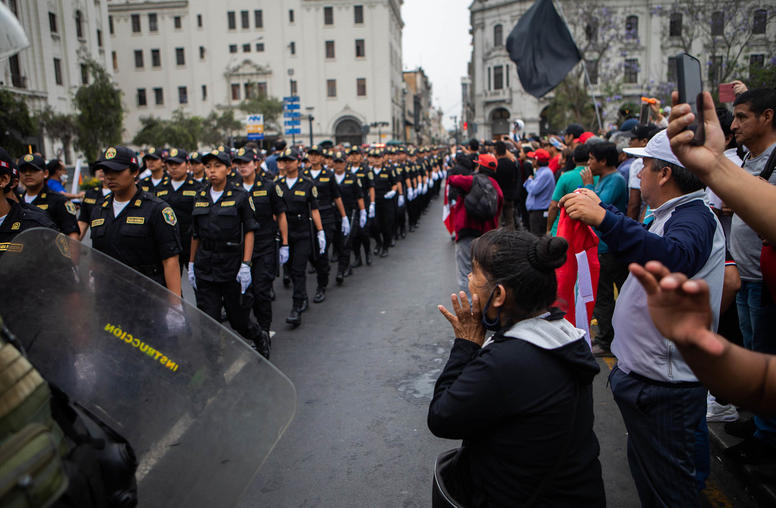
Rage and Repression in Peru: Restoring Citizen Trust and Public Order
Peruvian national governments have lurched from crisis to crisis in recent years. Corruption allegations repeatedly ignite political turmoil, pitting narrowly elected presidents against deeply divided legislatures. The last four presidents were all either impeached or forced to resign and the four before that completed their terms only to face criminal charges or investigations after leaving office.

Rabia y represión en el Perú: restableciendo la confianza ciudadana y el orden público
Las distintas administraciones del Perú han experimentado continuos ciclos de crisis en los últimos años. Escándalos de corrupción han agitado el mundo político repetidamente, enfrentando a presidentes contra congresos profundamente divididos. Los últimos cuatro presidentes fueron removidos del poder u obligados a renunciar y los cuatro anteriores completaron sus mandatos solo para enfrentar o investigaciones judiciales después de dejar el cargo.
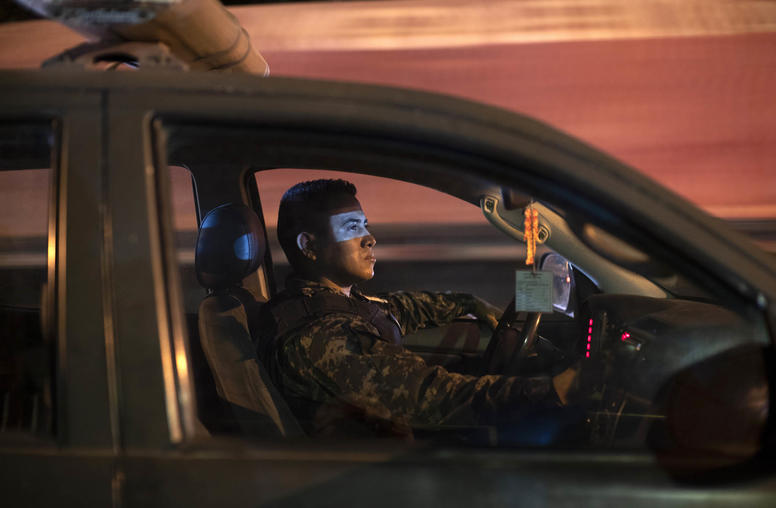
Honduras Makes Progress in Tamping Violence — But at What Cost?
“Historic reduction in the homicide rate,” the Honduran government tweeted in a thread celebrating security achievements during President Xiomara Castro’s first year in office. The country’s official rate of 36 murders per 100,000 people in 2022 (down six points from 2021) still places Honduras among Latin America’s — and the world’s — most violent countries. But it represents clear progress since the early 2010s, when the impoverished Central American country seemed caught in a spiral of violence linked to street gangs and drug traffickers, with rates topping 85 murders per 100,000.

Honduras progresa en controlar la violencia, ¿es posible hacerlo de forma sostenible?
“Reducción histórica en la tasa de homicidios”, tuiteó el gobierno hondureño en un hilo celebrando los logros en materia de seguridad durante el primer año en el cargo de la presidenta Xiomara Castro. La tasa oficial del país de 36 asesinatos por cada 100.000 habitantes en 2022 (seis puntos menos que en 2021) mantiene a Honduras entre los países más violentos de América Latina y del mundo. Pero representa un claro avance desde principios de la década de 2010, cuando el empobrecido país centroamericano parecía atrapado en una espiral de violencia vinculada a las pandillas callejeras y al narcotráfico, con tasas que superaban los 85 asesinatos por cada 100.000 habitantes.
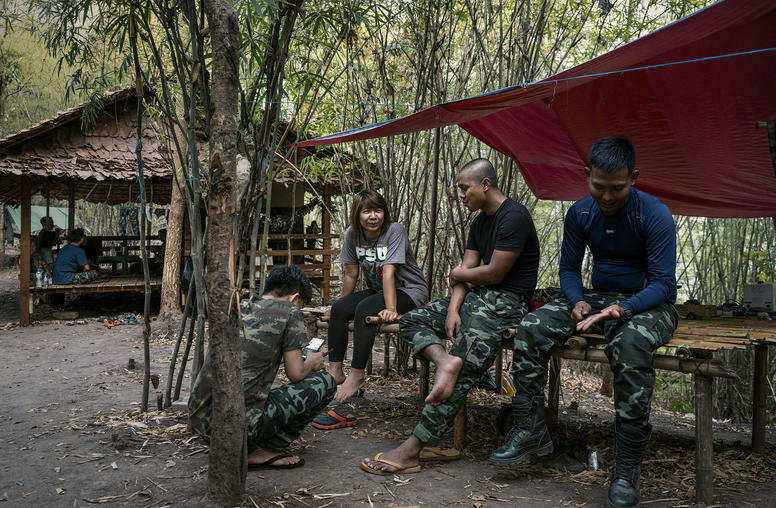
The Role of Women in Myanmar’s Evolving Security Institutions
Myanmar’s women have assumed an unprecedented leadership role in the pro-democracy resistance since the 2021 coup. From nonviolent protest movements to fighting in People’s Defense Forces (PDF) to the National Unity Government (NUG), women have been instrumental in the fight against the ruling junta’s brutality and oppression. But as Myanmar’s network of resistance groups slowly weakens the junta’s grip, resistance leaders are now faced with a daunting task: How do you re-establish security and stability in a country long plagued by civil conflict?

Event Extra: Syria’s Brutal Civil War and the Elusive Quest for Justice
In 2016, the U.N. General Assembly established the International, Impartial and Independent Mechanism for Syria (IIIM), after vetoes in the U.N. Security Council prevented referral of the Syrian situation to the International Criminal Court. IIIM Head Catherine Marchi-Uhel discusses the obstacles to this work, the progress made to date and what lessons it can provide for delivering accountability and justice in other conflicts.
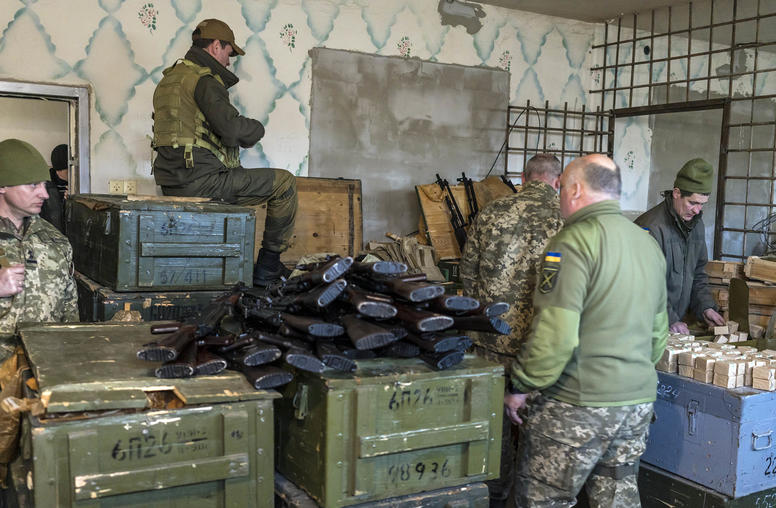
Ukraine: The EU’s Unprecedented Provision of Lethal Aid is a Good First Step
Just three days after Russia began its war of aggression against Ukraine, the European Union announced that it would provide weapons to Ukraine through a new financing instrument, the European Peace Facility (EPF), marking the first time in EU history that the bloc provided lethal weaponry. Over the past six months, the EU has provided €2.5 billion to Ukraine through the EPF for arms and equipment, signaling a more muscular EU foreign policy featuring the unprecedented provision of direct military assistance.
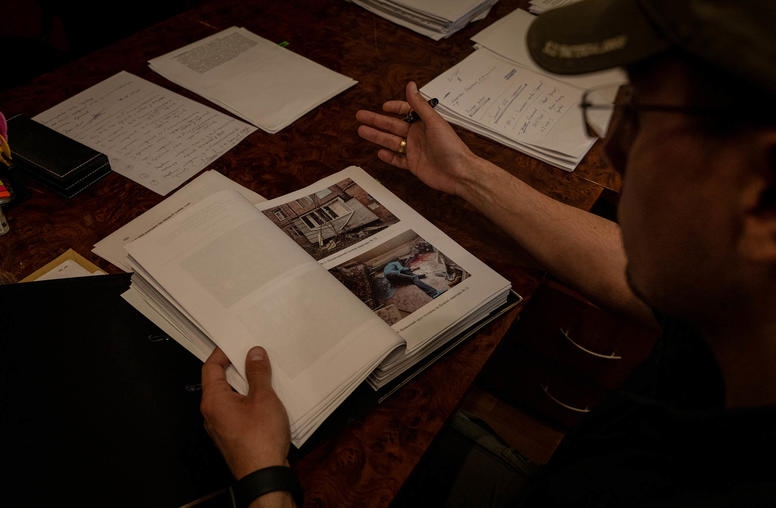
Nobel Peace Prize: Documenting Rights Abuses is Vital in Ukraine and Beyond
The award of the 2022 Nobel Peace Prize to one individual and two civil society organizations — from Belarus, Russia and Ukraine — recognizes the critical role civil society documenters play in holding states accountable for human rights abuses. The laureates have brought to light the breadth of abuses committed by authoritarian regimes in Belarus and Russia and the vast harms suffered by Ukrainians as a result of the Russian invasion. They also reflect a larger global trend, where civil society organizations document crimes in order to hold perpetrators accountable, memorialize the suffering of victims, and provide critical information to families on the fates of their loved ones.